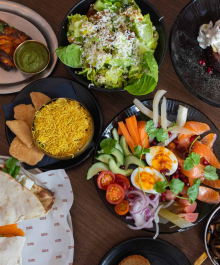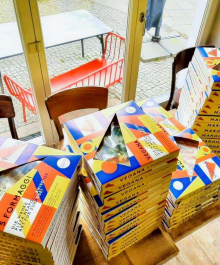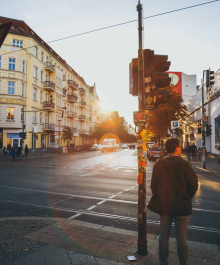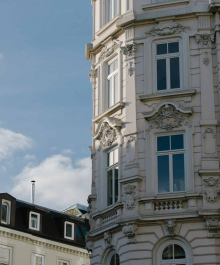
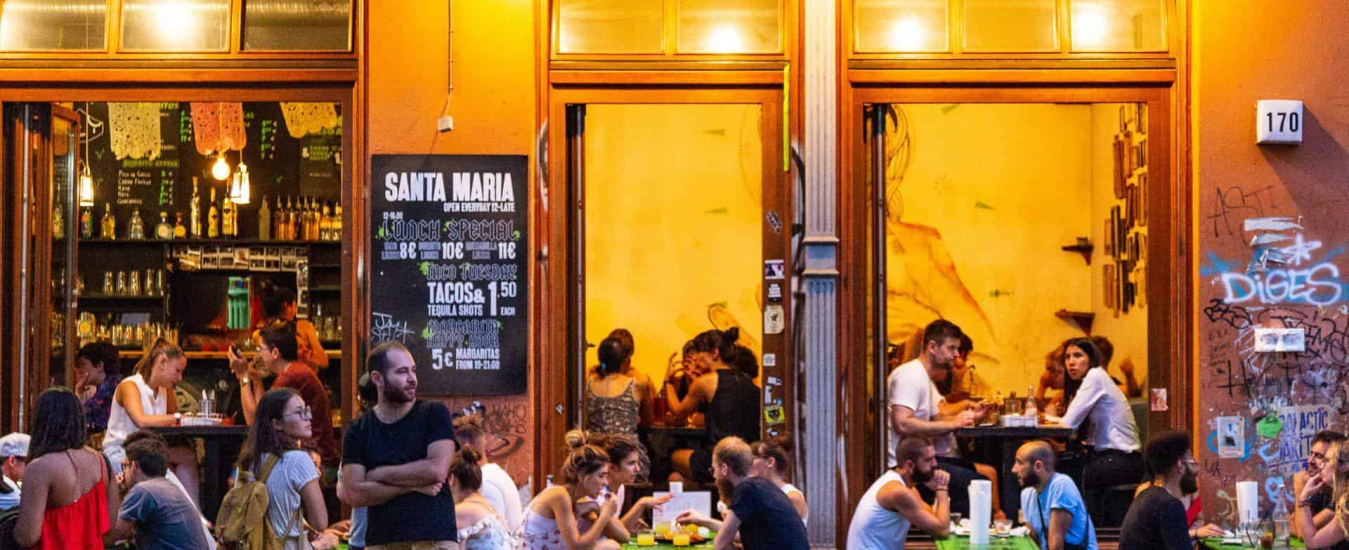
Restaurateurs tell us how Berlin’s gastro scene is really coping.
As the world began locking down to prevent the spread of coronavirus, and my beloved Berliner bars and restaurants began shutting their doors, one of my first questions was ‘how on earth are they going to survive this?’
Rent, wages, health insurance, kitchens stuffed with food and barrels full of booze – you often don’t appreciate how costly it is to immediately have to close a business.
With crowdfunding campaigns aimed at flooding our favourite businesses with cash appearing every day, it’s become abundantly clear how economically fragile Berlin’s nightlife and gastro scene is. What will our great city look like post-corona? Will our favourite places to gorge and booze still be there to welcome us back?
We asked three well-known and loved Berlin restaurateurs to find out how they’re handling the situation, whether government support can save the day and how they see the future of the city’s gastronomy scene. Here’s what they had to say.
What’re your situations right now?
“As with most of Gastronomy in Berlin right now, financially ruined”, says Zed, who runs Kreuzberg neo-Indian eatery Moksa. This was echoed by Herrfurthplatz’s popular cafe/bar Selig owner, Christian: “Right now, we’re struggling a lot with money and can’t pay our staff or bills”.
For Santa Maria/Santa Cantina owner Jules, customers ordering takeaways and deliveries have provided a solution to lost, much-needed income – at least temporarily: “Hopefully, they don’t run out of money anytime soon because then I will…”
What about support from the government?
“HAHAHAHA,” Jules is forthcoming in his view, “well they’ve never tried to help small businesses before so I don’t really see them trying now”.
Government support appears to be available to small businesses, but will it ever materialise? “At this moment, it’s all talk,” says Zed. “Word is that it comes in the form of a loan which must be paid back in a very short period of time. Only those with a good and long track record will be approved, just like a traditional loan.”
“We’ll get no credit because we are not more than three years on the market. The lucky ones with this money which the government provides are employees and big companies”, Christian adds.
It’s true, money for employees (‘kurzarbeitergeld’) does exist. 60% of an employee’s wage will be covered by the government. “The ‘kurzarbeit’ stuff is nice in theory, but who the hell knows when that money will actually arrive?” exclaims Jules. “In my opinion, it’s more Wild West than it’s ever been and I’ll be doing everything I can to support myself and my people without expecting any assistance whatsoever. I would recommend any other restaurant to do the same.”
“It will be bigger and richer restaurants and chains which get any kind of government assistance. If you sit around waiting for someone to bail you out, you may as well declare bankruptcy right now and beat the queue.”
How are your employees coping?
For Christian, hope lies with kurzarbeit supporting his team financially until Selig can reopen. For Jules, he feels like he’s letting his employees down.
“They are in a situation in which they have even less control than me and the uncertainty must be troubling. All I can do is offer them some food and assurance that the state will come to their aid. I certainly can’t afford to continue paying people without assistance from the state.”
Can you imagine businesses closing because of this?
This question, sadly, is greeted with a resounding “yes”.
“Many will because they were financially not prepared to survive this crisis,” says Christian stoically, with Jules characteristically responding “LOL. Most of them”. For Zed, “One month is all that is needed to destroy 90% of gastronomy in Berlin.”
“I’m sure we will lose some good places as a result” predicts Jules, adding, “The restaurants which do pull through, however, will have a much stronger supportive community than before and may find themselves prospering as a result of the coronavirus. It could well be a blessing in disguise for some, and doom and gloom for others.”
And these crowdfunding campaigns… can they feasibly help?
There’s a mixed response to this question. Jules is pragmatic, reiterating that he’s open for (takeout) business and that that’s the best way people can support him and his business. “I will continue selling food, and buying our food is the best thing to do to continue supporting my staff and myself. I’d prefer to keep doing what we do best – making and selling food.”
Zed, on the other hand, views crowdfunding as being a drop, albeit a pleasant one, in a huge ocean. “Honestly, no they cannot. The situation is far too complicated. You’d need to raise thousands to keep a business afloat.”
Our friends at Badfish’s crowdfunding campaign has gathered momentum, and owner Myles is pleased to see such support for the bar. “The way we look at it is, doing nothing won’t help. We need to be proactive and do whatever it takes to keep our heads above water. It’s sink or swim.”
Christian has just launched a Startnext campaign for Selig, which you can contribute to here.
What do you suggest should happen to fix this situation?
“Cure the virus?” quips Jules.
For Zed, it’s more practical. “Rents, mortgages and credit need to be suspended. Staff costs need to be covered in full. Payment of taxes also needs to be suspended. If this doesn’t work, the government should front the costs for each business, not as a loan, but a grant. The alternative is massive levels of insolvency and unemployment that will cost the government much more.”
“If we’re being realistic,” reasons Christian, “the government can’t save everyone, there isn’t enough money. Having your own business also means that you’re responsible for it. It’s hard to admit, but I think that’s part of the game. My new daily mantra is: ‘it’s not that you should never love something so much that it can control you. It’s that you need to love something so much so you can never be controlled.’”
“There is certainly no easy fix,” concedes Jules, “but I can see some positives already in the last few days in interacting with customers and revealing a more human side to the business – we’re all in the same boat, fighting the same fight. Hopefully, this kind of solidarity continues after the crisis and restaurants in Berlin have a closer bond with their customers and we can all work together to improve the gastronomy scene here”.
How do you imagine this changing Berlin’s gastro scene into the future?
There is some good that could come out of this situation, with low-quality establishments disappearing (“Darwinistic”, as Jules calls it) and a stronger food community developing.
Zed hopes the perception that everyone owning a restaurant is wealthy will end. “Maybe we should just be more open about the cashflow so that they understand that what they want in return is sometimes just not possible. The profit margins are so thin in this industry, with cash flowing in and out via many sources, it makes for a very hostile and fragile environment.”
We also need to change our idea of what something’s worth – that the aim is to spend less and get more. Berlin is terrible for this.”
Christian sees it as an opportunity to learn from mistakes made in the industry. “I hope we will all take more responsibility for ourselves, to start having financial backups. I also hope that the government will learn to be more lenient on the gastronomy industry.”
Have you perversely enjoyed your new-found downtime?
“I’ve been sleeping for more than four hours a night!” reveals Zed, while Christian’s treating it as a bit of a holiday – “even though I’m full of anxiety, I really enjoy this time of not doing anything!”
Jules, ever the contrarian, hasn’t exactly been putting his feet up. “I fucking wish I had time off. This lockdown is a lot of work!”
Order online from Jules’ Piri’s and Santa Maria.
Order online from Zed’s Moksa.
Support Christian’s Startnext campaign for Selig.

